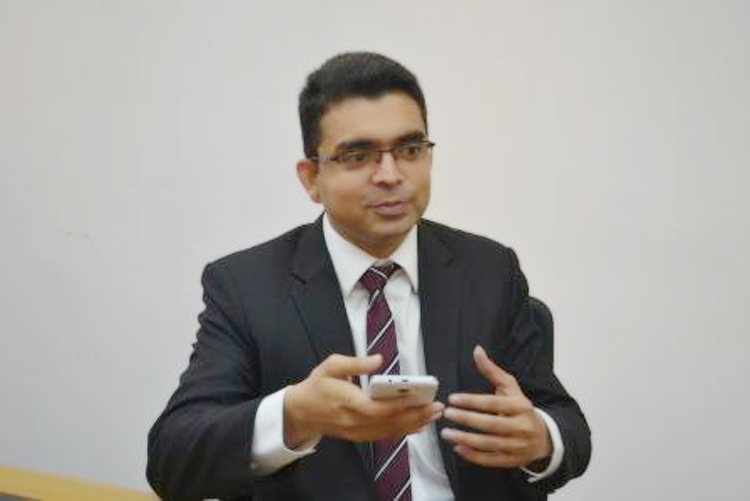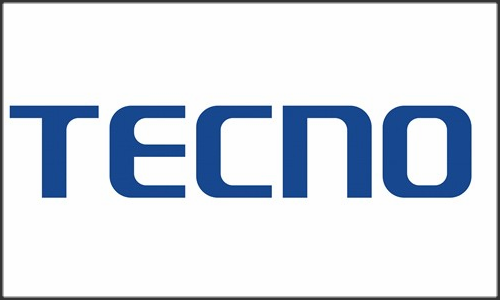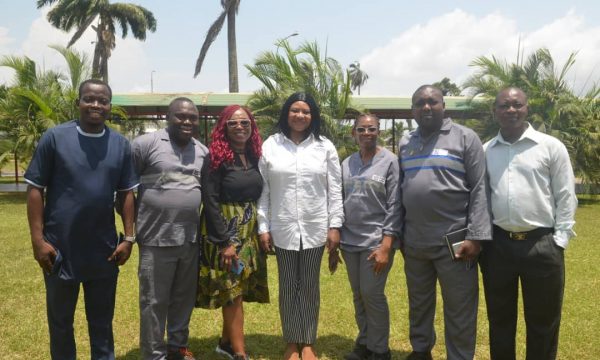News behind the news is usually critical even those many often form opinion based on the “news.” But behind the recent news of seizure of counterfeit phones by SON at Computer Village in Lagos are other news that suggests collusion between a foreign brand and regulatory institutions to stifle Nigerian business interests.
T  he Standards Organisation of Nigeria (SON) recently activated what it described as a war against counterfeit and substandard mobile phone handsets in the country. In a move that somehow won commendations from across many segments of the population in the country, SON, backed by the officials of the Nigerian Police, raided the Computer Village in Lagos where it claimed it made a haul of counterfeit and substandard mobile phone worth over N200million.
he Standards Organisation of Nigeria (SON) recently activated what it described as a war against counterfeit and substandard mobile phone handsets in the country. In a move that somehow won commendations from across many segments of the population in the country, SON, backed by the officials of the Nigerian Police, raided the Computer Village in Lagos where it claimed it made a haul of counterfeit and substandard mobile phone worth over N200million.
It was a raid well carried out. One of the many reports in the media after the raid described it as very successful. The report quoted SON’s Head of Intelligence and Compliance Directorate, Mr Bede Obayi, as saying that the exercise “was diligently carried out following its surveillance team reports, which monitor products displayed for sale in all the markets across the country.”
As those who were content in hearing only the regulatory voice shuddered at what should otherwise be considered as the evil practices of the phone dealers, those of us who have seen regulatory selective blindness went into the job of probing the raid a wee bit further and it was discovered that a mobile phone brand that a few years ago was looked down upon as a copycat brand may have been behind the raid.
Marketing is one strange place. Strange in the sense that in many respects, you find someone who makes stuff as deadly as guns and bullets invest in the social responsibility task of saving bullet wounds victims in hospitals. But this narrative is not in any way about CSR. On the contrary, it really is about how regulatory agencies and even security outfits devote time and national resources to facilitate the dominance of the Nigerian economy by foreign interests at the expense of Nigerians who are the ones that are actually paying the taxes that sustain the regulatory activities.
You see, it the Computer Village (the name that IT equipment business cluster located in Ikeja Lagos, is called) has been notorious for importing all manner of fake material. Telephone handsets are just one of the scores of items involved. It was therefore a bit of a shocker that SON went into the market to confiscate “fake” mobile handsets alone. Was SON fighting to rid the country of fake handsets or were they protecting a vested interest scared that other brands in its category might develop the muscle to slow its growing dominance?
VESTED INTERESTS?
For you to appreciate what is being said here, we will try and paint a background picture here. You see, if all the low-end handsets imported by Nigerians were to be cleaned off the shelves, there can only be one beneficiary and that would be TECNO mobile, the handsets dealer from Hong Kong. When TECNO came into the market here, it was notorious for all the wrong reasons. One, it was considered as substandard; it had no after sales support; really had no office address and had very wretched designs that appealed only to those who did not have the resources to buy multiple mobile phones but who also wanted the values in having their two phone lines work. Before TECNO made it popular, the other Original Equipment Manufacturers were reluctant to market dual SIM phones. It did not make marketing sense. Why should you give a dual SIM phone to someone when you know the person would certainly need to buy another handset if he has to have two active SIM cards at every point in time.
But it made no sense to TECNO that at the time, was struggling and really did not have any other market in any other country except Nigeria. Although people called TECNO “Chinko”, a street lingo for substandard mobile handset from China, the low income people in the market would rather live with the stigma of buying such a phone than be locked out of the telecommunications revolution that was convulsing the country at the time.
But TECNO grew. The low income population of Nigeria is huge, representing well over 80 per cent of the total population. This is one huge space for one brand. Throwing the stigma of owning a cheap phone, Nigerians took to TECNO and result was a growth that, if and when measured, would never be rivalled by any in and outside the industry.
The more TECNO made money, the more it invested in improving its look and feel and moved from its bottom of the market home at the “E” level, upwards to the “D”, “C” and even the “B” segments.
TECNO is not known to own any factory anywhere in the world. It also is not known to own any patent in the OEM design and software industry. A search across the internet showed the brand may be headquartered only in Nigeria from where it is launching entries into other African markets like Ghana and Kenya. This really means that what the brand does is go to its home in China, get one of the factories in that sprawling industrial haven to cobble together a phone casing; move to the open software market where it, as could anyone else, buy android software, motherboard, and a few other components and the job is done for it. It becomes therefore, only natural for the brand to feel uncomfortable what Nigerians begin to do what it had done to achieve success.
And that is what they did, Nigerians, working with the Standards Organisation of Nigeria (SON) began to register their own brands. And they took SON along. Findings reveal that SON was given an office at the secretariat of Phone and Allied Products Dealers Association of Nigeria (PAPDN) inside the Computer Village market. To date, these traders have registered over 30 mobile phone brands, including smartphones.
THE FUTURE IS GLOOM
As more and more Nigerians, who hitherto, were pushing the TECNO brand, began to pay more attention to their own registered phone brands, it is only natural for TECNO to become uncomfortable. So there has to be a change of strategy. Rather than rely on these people to continue to market the product, TECNO moved into the market. They began to set up outlets, appointed a few major distributors, branded their shops and the rest is history.
But undeterred, these Nigerians continued to push. Their network across the country ensured their own brands were selling increasingly higher upcountry. When you look at the numbers, it becomes clear that TECNO might eventually sell heavily in Lagos but risk losing market share upcountry because it has neither presence nor network to push into those spaces.
Inside the market, it is strongly held that the raid by SON on the market did not just coincide with the season indigenous players were having issues with some of TECNO’s business practices. They strongly believe SON was tipped to raid the market so it can muzzle Nigerian traders and thus give it increasing control.
They insist on this position because during the raid, SON and the police seized just about anything in sight, including calculators. And there were Chinese nationals (TECNO staff) who actively were working with the police and SON against Nigerian interests during this raid.
TECNO CANNOT GO TO THE NIGERIAN POLICE
During the raid at Computer Village, angry Nigerian traders who “knew” TECNO was the unseen hand behind the raid attacked the office this brand has in the market and smashed a few windows. One person, by name, Oscar Chukwuka was arrested. He was taken to the Area F Command of the Force in Ikeja where, according to him, he was detained along with hardened criminals in an open cell. From there, he was taken to the Office of the Commissioner of Police and held there.
For one month, Oscar was in detention. As the procedure goes, TECNO was supposed to write a statement to the police of what happened during the raid. But Police would not even invite the owners of the brand to the police to state their own side of the story. Rather they took the detainee to the market, paraded him on leg chains on the pretext that they were taking him there to enable the TECNO Chief Executive to write his statement.
TECNO’S BUSINESS IS OEMs-DRIVEN AND SO SHOULD OURS
The business of manufacturing phones, like the business of manufacturing just about any other thing in the world today has been made easier by the growth and spread of Original Equipment Manufacturers (OEMs). In the automobile industry for instance, there are factories whose business is to made design specific components. Those who do the engine are different from those who do the air-conditioning system. Those who do the seats are also different from those who do the headlamps. What does this mean? There is no one-stop-shop for making a car. Components come from different sources and they are then fitted together to make a car which the owner then brands.
In the telephone industry, everyone knows it was Samsung that was making screens for iPhones until the serial legal issues between them made Apple to move the business to LG. This is recent history and TECNO benefitted exceedingly from this.
What does it do? It waits for Samsung to release a product in market and then it goes after the OEMs from where Samsung bought its major components, buys them up and then takes them to a factory where they are fitted together and a brand name is slapped on it. Those who are tech-savvy would tell you that the motherboards for all these devices are basically the same. And Google is always not too distant and would sell its android to anyone who has the money.
It is therefore strange that a brand would work surreptitiously to stifle the businesses of people who do their business the same way it does its own. By colluding with SON to label these phone brands as fake, TECNO may have forgotten its history, its business strategy. But the bigger blame is on SON that apparently would to uphold the interests of a foreign company against that of Nigeria and Nigerians.
LIKE THE PHONE INDUSTRY, LIKE ADVERTISING
Elevating foreign interests against those of Nigerians did not start today. TECNO therefore is not doing anything new. Two years ago, a foreign advertising agency, Scanad, owned by Indian advertising shark, Bharat Thakrar came into Nigeria in clear violation of the letters of the partnership between him and Prima Garnet Nigeria, owned by Lolu Akinwunmi.
Bharat was not just breaching his partnership agreement but he was also in violation of the Code of Practice of advertising in Nigeria. But as he and Lolu, who then, was the Chairman of the country’s advertising regulator, APCON raged, the Indian found Nigerian friends who not only helped him set up shop, but also were ready to enable him ride roughshod on Nigerians.
Nigerians helped him write articles in the newspapers against Nigerian interests. Nigerians helped him find gaps in the legal system that could have helped him set up shop. In fact, Nigerians buoyed his confidence on the futility of any struggle against him.
Those who followed the Scanad saga when it lasted would therefore not find the current stance of SON in favour of TECNO and against Nigerians as strange. As one person put it, “if any foreigner wants to kill a Nigerian business, he readily finds partnership in Nigerian regulators and the security agencies.”






